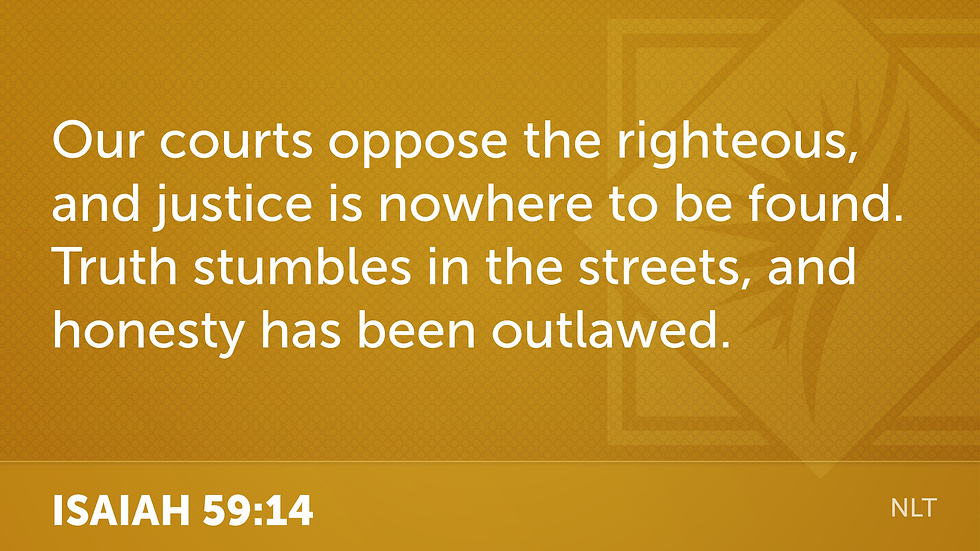Forsaken for You
- Christian Military Fellowship
- Nov 3, 2024
- 3 min read
At the ninth hour, about 3 P. M. All that follows occurred just before his death. Cried with a loud voice, the utterance of intolerable mental suffering. Eloi, Eloi, etc. The original words are given to explain how some took it to mean Elijah. Matthew gives the Hebrew form, “Eli,” Mark the Aramaic. My God, etc. This was taken from Ps. 22:1. As in the great series of temptations Jesus kept quoting from Scripture to sustain him, so here on the cross. Forsaken. We cannot sound the depths of meaning of this awful word as here employed. In himself the Saviour was still well-pleasing to the Father, in voluntarily laying down his life (John 10:17); it must have been as our substitute, “made sin for us” (2 Cor. 5:21), “wounded for our transgressions” (Isa. 53:5), that he was forsaken.
Deserted! God could separate from his own essence rather:
And Adam’s sins have swept between the righteous Son and Father;
Yea, once Immanuel’s orphaned cry his universe hath shaken—
It went up single, echoless, “My God, I am forsaken!”
It went up from the Holy’s lips amid his lost creation,
That, of the lost, no son should use those words of desolation.
—Mrs. Browning.
This agonized cry was utterly misunderstood by some by-standers, or else maliciously misrepresented. 35. He calleth Elijah. From Malachi (4:5) there had arisen a popular expectation that Elijah would come as a forerunner of the Messiah. The bystanders seem to have amused themselves with the thought that this pretended Messiah was in his helpless extremity calling on the predicted forerunner of Messiah to come and help him. 36. The vinegar was not the stupefying draught of ver. 23, but a sour drink which the soldiers had for their own use (John 19:29). Jesus had refused the former, but accepted the latter to moisten his lips, so parched with bodily pain and bloodshed and terrible mental suffering. In fact, John tells us that he virtually asked for it by saying “I thirst,” and adds that after receiving the cooling drink he said, “It is finished” (John 19:28–30). Let be; let us see, etc. We cannot tell whether the drink was given in compassion, or, as these words would indicate, in mockery. 37. Jesus uttered a loud voice, as in ver. 34 a cry of great suffering. Luke (23:46) tells us what he said, “Father, into thy hands I commend my spirit.” This also was taken from Scripture (Ps. 31:5). Gave up the ghost is an old English expression. The Greek would be exactly translated by “expired.”
Of our Lord’s seven sayings on the cross only one is given by Matthew and Mark, three by Luke only, and three by John only. Three of the sayings were uttered in the earlier part of the six hours he spent on the cross before his death. (1) “Father, forgive them; for they know not what they do” (Luke 23:34). (2) “Today shalt thou be with me in Paradise” (Luke 23:43). (3) “Woman, behold thy son” (John 19:26). The other four sayings were uttered in quick succession just before his death. (4) “Why hast thou forsaken me?” (ver. 34; Matt. 27:46). (5) “I thirst” (John 19:28). (6) “It is finished” (John 19:30). (7) “Father, into thy hands I commend my spirit” (Luke 23:46).
Broadus, J. A. (1905). Commentary on the Gospel of Mark (pp. 135–136). American Baptist Publication Society. (Public Domain)




Comments